Authors: Richard Anderson
Posted: Thu, December 20, 2012 - 2:05:59
During a recent Sunday evening, I participated in the popular healthcare communications and social media (#hcsm) tweetchat. This weekly chat, started nearly four years ago, was the first regular hashtag healthcare chat on Twitter, but it is now only one of many. And many of this many bring together patients seeking help and support.
Twitter conversations are just one of an increasing number of patient uses of social media in healthcare. Some of these uses are described in “The Multidimensional Role of Social Media in Healthcare,” published in the July+August 2011 issue of interactions. Among them are online patient communities such as PatientsLikeMe.com and crohnology.com. Such communities comprise a growing system of peer-to-peer healthcare which empowers patients in ways essential to a fully functional healthcare system.
Earlier this month, Jane Sarasohn-Kahn referenced some of the benefits of health-focused communities:
"Social networking holds significant promise for engaging people in health and changing health behaviors. Two thirds of people try to change their health behavior each year; 50% do not sustain those behavior changes... When people connect with a social network of peers, though, commitment to behavior change is bolstered and supported..."
This would be key to the success of, for example, the American Heart Association's recently proposed use of social media as a weight-management tool for children.
This importance of the social to achieving the personal was one of the recurring themes of the Stanford Medicine X 2012 conference in September. Some examples: Pew Research Center's Susannah Fox referenced the integration of apps and a website with in-person support groups as the secret to the success of Weight Watchers; founder Sean Ahrens argued that the key motivator of crohnology.com is that users' entries are status updates for all—that users self-track for others, for sharing; IDEO's Dennis Boyle echoed this, stating that the quantified "us" is more motivating that the quantified "self"; and Ernesto Ramirez, a leading facilitator of the Quantified Self movement, argued that the "ourness" of data is what matters most—that a word better than the word "empower" would be "emp-our-r." At a subsequent "The Future of Health" event in Palo Alto, Keas's Adam Bosworth spoke about the increasing importance of gamification to individuals' achieving healthy behavior, arguing that if you're not a part of a team, you won't sustain in the game.
Note that the social influences more than motivation. As pointed out by Stanford's BJ Fogg:
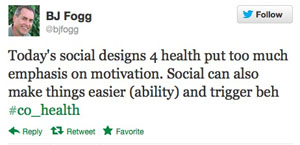
In short, people can often learn a great deal from others in social networks that is of direct relevance to achieving their personal goals and to triggering advisable behavior. Indeed, much of importance can often be learned. As Roni Zeiger puts it, "a well-functioning online patient community is a network of microexperts."
However, not all applaud such uses of social media. As Elizabeth Mynatt put it subtly in “IT in Healthcare,” which appeared in the May+June 2011 issue of interactions, "online sites such as PatientsLikeMe.com are causing a stir in the medical community."
Yet, things keep moving forward. Reports of the benefits of peer-to-peer healthcare are accumulating. Without a doubt, achieving the personal is often much too hard without the social.
Richard Anderson is a consultant and instructor who can be followed on Twitter at @Riander.
Posted in: on Thu, December 20, 2012 - 2:05:59
Richard Anderson
View All Richard Anderson's Posts
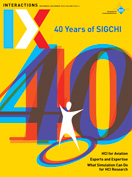
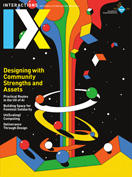
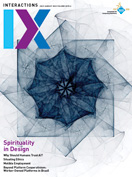
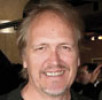


Post Comment
@pam strayer (2013 01 22)
Just to point out ...a lot of these things (like quantified self) have not been shown to be efficacious by researchers. I would be happy to talk to you about what has been. PatientsLikeMe is just the latest in a 15 year online patient support movement led by some early days pioneers (no longer with us). None of the people at the Stanford conference who you’ve mentioned have health efficacy chops - they have all gravitated to this newly, more or less, and are the same people who go to Health 2.0. I have worked with leading epidemiologists on online behavior change in health for a period off and on over 20 years. While I like B. J. Fogg, he also is not a health researcher. I can tell you who is…this is a big nut to crack and many people with many nutcrackers have been finding out interesting things, but they probably weren’t at the Media X conference. So let’s talk
@pam strayer (2013 01 22)
PS All of which is not to suggest that your main point is not right on! It is….but with many other important factors and influences…“health” covers is a complex set of needs and audiences with many distinct needs in terms of communications to support behavior change or coping with illness. There is some very interesting research. I also am quite interested in the Journal of Participatory Medicine - a great resource to check out.
@[email protected] (2013 01 22)
Thanks Pam. And thanks for getting together with me for coffee this morning during which we discussed a lot of your points.
Note that the conference I referred to is Medicine X, which I believe has nothing to do with Media X.
Anyone else have comments? Hey—maybe you, too, can get together with me for a discussion after you author your comment! An enticement or a threat??? 😉